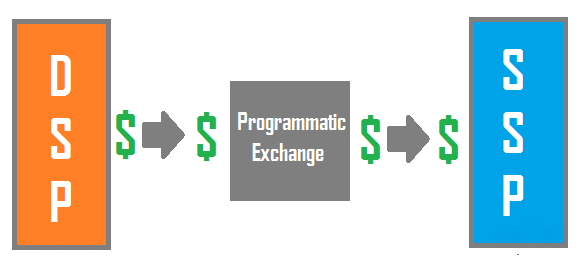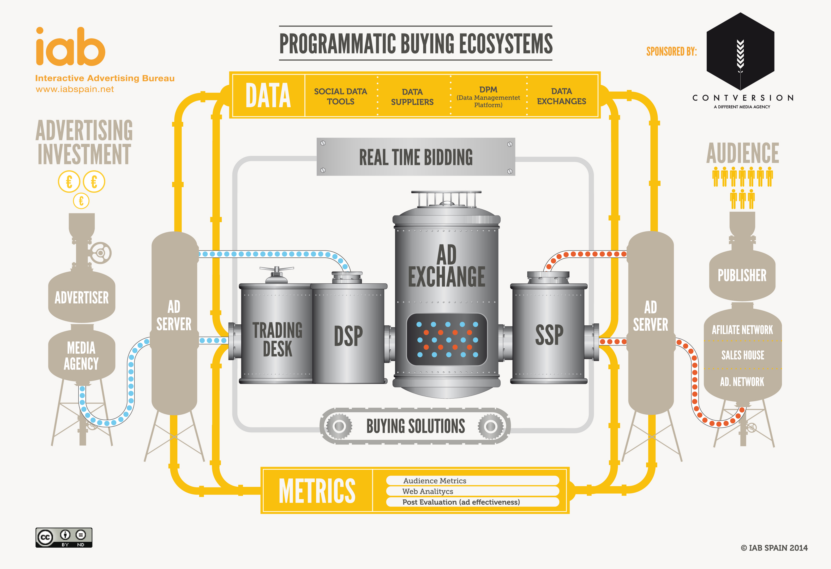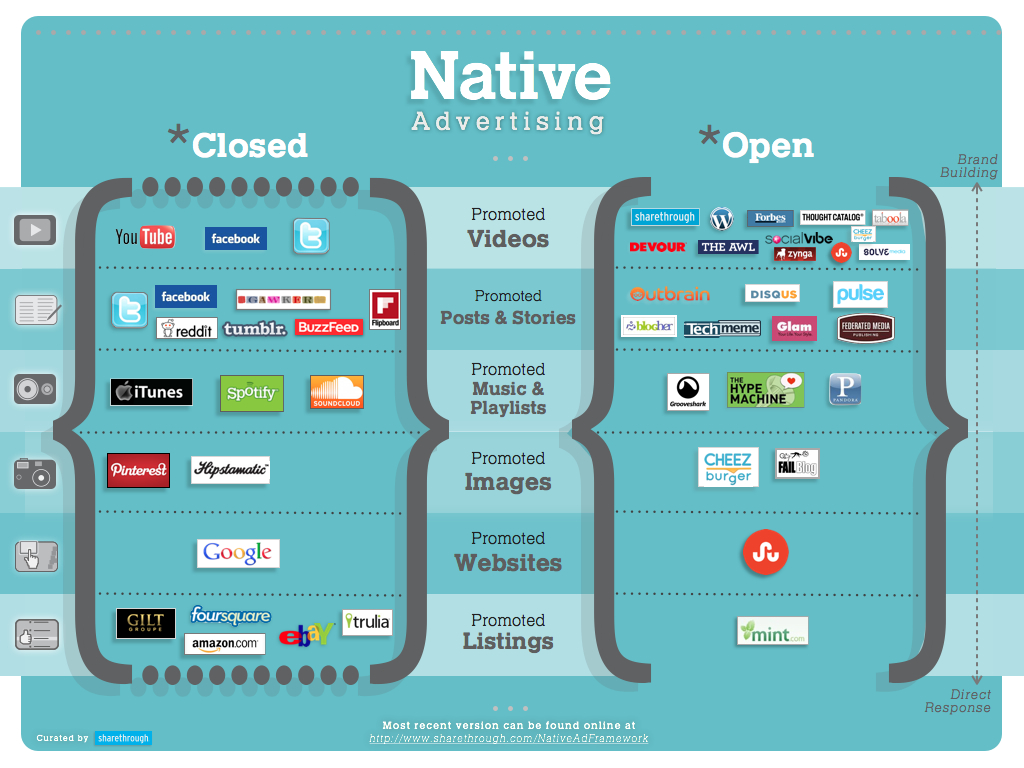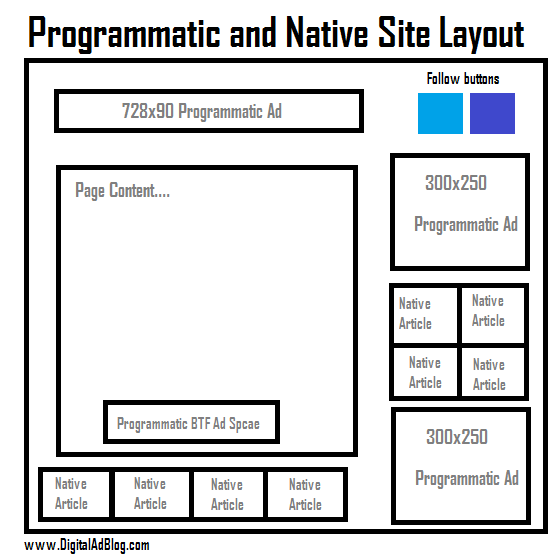Native and Programmatic Advertising Comparison
Native and Programmatic: Monetizing in Harmony
Programmatic and Native are two terms that are hot in the digital advertising conversation. Think of them as cousins; programmatic being the older more experienced and dominant force and Native being the newer technology but rising in popularity and usage throughout the lumascape. Here is a quick definition of programmatic vs Native to get the ball rolling
Programmatic Advertising: Defined
Programmatic Advertising is the automated buying and selling of digital ad inventory in real time. Programmatic embraces a multitude of ad serving technology and data analytics tools to serve the right creative to the right user at the right time with the lowest cost to the advertiser (Demand) and the highest revenue for the publisher (supply)
Native Advertising: Defined
Native Advertising is when you see a link with an image that says “recommended content.” Native advertising embraces data sets and the surrounding web content of a page to recommend articles that a user is likely to engage with. Like programmatic, native advertising drives value to both the advertiser and publisher. The key difference is that native focuses on driving traffic to content rather than specific offers. Native promised a more “organic experience” then programmatic but this is highly debated.
In a native ad network cost and performance is generally associated with clicks. When a recommended article is clicked the inbound site generally has to pay a fee. On the other end of the spectrum, the outbound site will get credited revenue for the click or a free impression from another site who shows a link to their articles. Examples of native advertising companies are Taboola, Outbrain and and Zergnet (Mark Cuban is a part owner!)
Forced Engagement?
Programmatic and Native are used together on high impression volume websites to create large amount of revenue. Pitting programmatic and native together on a website has raised industry concerns. Web pages now a days may not give the user much of a choice, but to click something with an advertiser cost associated with it. No matter what colors, shading or visibility the image has there can sometimes be upwards of 30+ native and programmatic ads on any given webpage. Talk about content overload! This creates tremendous engagement on the page in turn increasing the value of these inventory spaces but creates an environment where a user may not organically click something they are genuinely interested. While this setup is still a gray area, it is being used by top websites today to monetize.
Want to Learn More about Digital Advertising?



